Tanish Tyagi
Massachusetts General Hospital, Boston, MA
NeuraHealthNLP: An Automated Screening Pipeline to Detect Undiagnosed Cognitive Impairment in Electronic Health Records with Deep Learning and Natural Language Processing
Jan 12, 2022
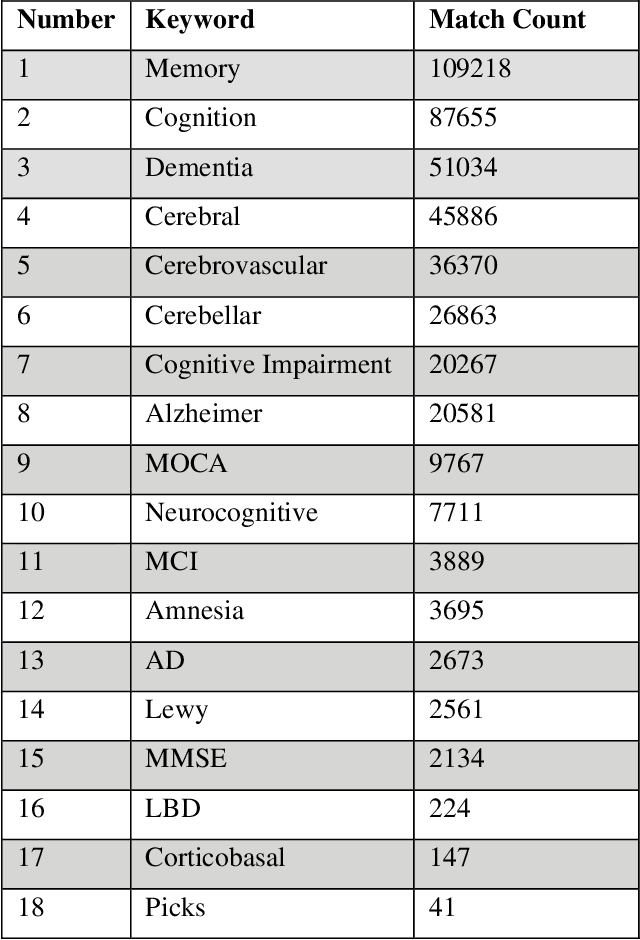
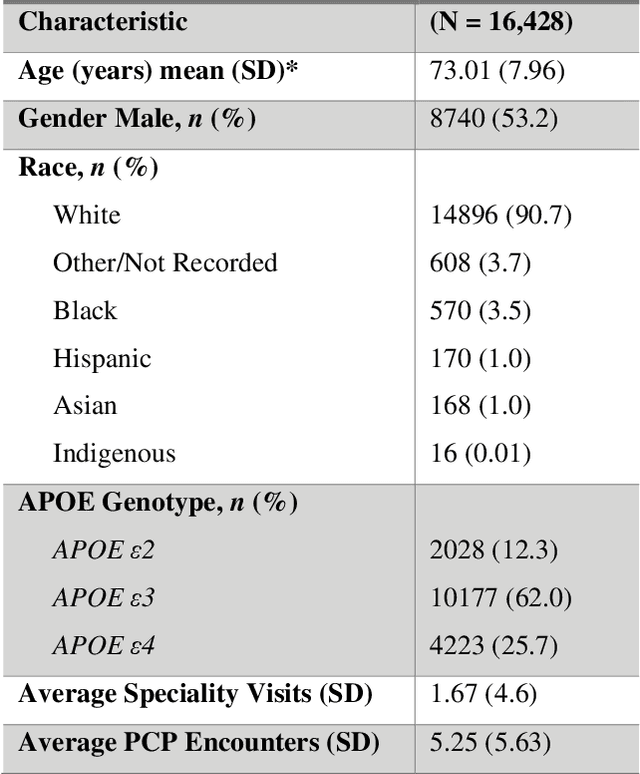
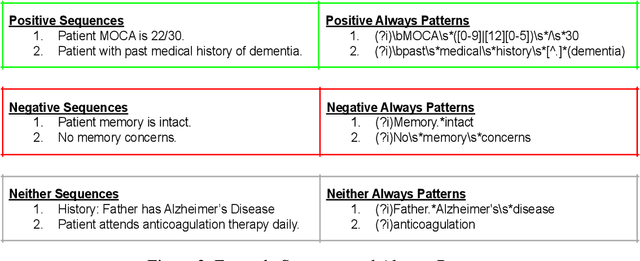
Abstract:Dementia related cognitive impairment (CI) affects over 55 million people worldwide and is growing rapidly at the rate of one new case every 3 seconds. With a recurring failure of clinical trials, early diagnosis is crucial, but 75% of dementia cases go undiagnosed globally with up to 90% in low-and-middle-income countries. Current diagnostic methods are notoriously complex, involving manual review of medical notes, numerous cognitive tests, expensive brain scans or spinal fluid tests. Information relevant to CI is often found in the electronic health records (EHRs) and can provide vital clues for early diagnosis, but a manual review by experts is tedious and error prone. This project develops a novel state-of-the-art automated screening pipeline for scalable and high-speed discovery of undetected CI in EHRs. To understand the linguistic context from complex language structures in EHR, a database of 8,656 sequences was constructed to train attention-based deep learning natural language processing model to classify sequences. A patient level prediction model based on logistic regression was developed using the sequence level classifier. The deep learning system achieved 93% accuracy and AUC = 0.98 to identify patients who had no earlier diagnosis, dementia-related diagnosis code, or dementia-related medications in their EHR. These patients would have otherwise gone undetected or detected too late. The EHR screening pipeline was deployed in NeuraHealthNLP, a web application for automated and real-time CI screening by simply uploading EHRs in a browser. NeuraHealthNLP is cheaper, faster, more accessible, and outperforms current clinical methods including text-based analytics and machine learning approaches. It makes early diagnosis viable in regions with scarce health care services but accessible internet or cellular services.
Machine Learning for Real-Time, Automatic, and Early Diagnosis of Parkinson's Disease by Extracting Signs of Micrographia from Handwriting Images
Nov 24, 2021
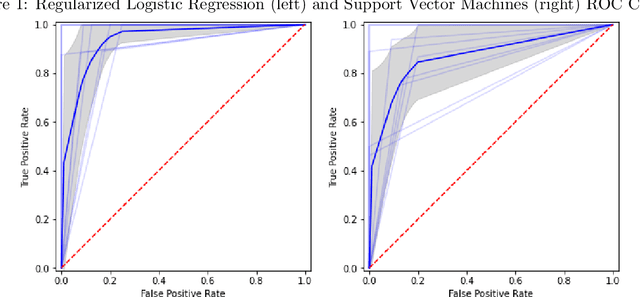


Abstract:Parkinson's disease (PD) is debilitating, progressive, and clinically marked by motor symptoms. As the second most common neurodegenerative disease in the world, it affects over 10 million lives globally. Existing diagnoses methods have limitations, such as the expense of visiting doctors and the challenge of automated early detection, considering that behavioral differences in patients and healthy individuals are often indistinguishable in the early stages. However, micrographia, a handwriting disorder that leads to abnormally small handwriting, tremors, dystonia, and slow movement in the hands and fingers, is commonly observed in the early stages of PD. In this work, we apply machine learning techniques to extract signs of micrographia from drawing samples gathered from two open-source datasets and achieve a predictive accuracy of 94%. This work also sets the foundations for a publicly available and user-friendly web portal that anyone with access to a pen, printer, and phone can use for early PD detection.
Using Deep Learning to Identify Patients with Cognitive Impairment in Electronic Health Records
Nov 13, 2021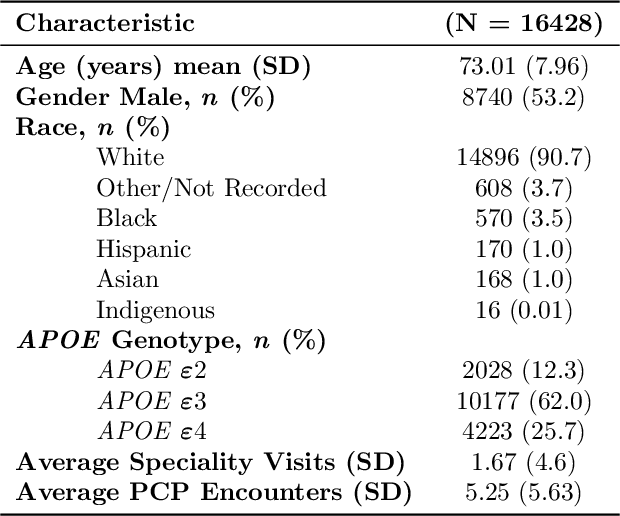
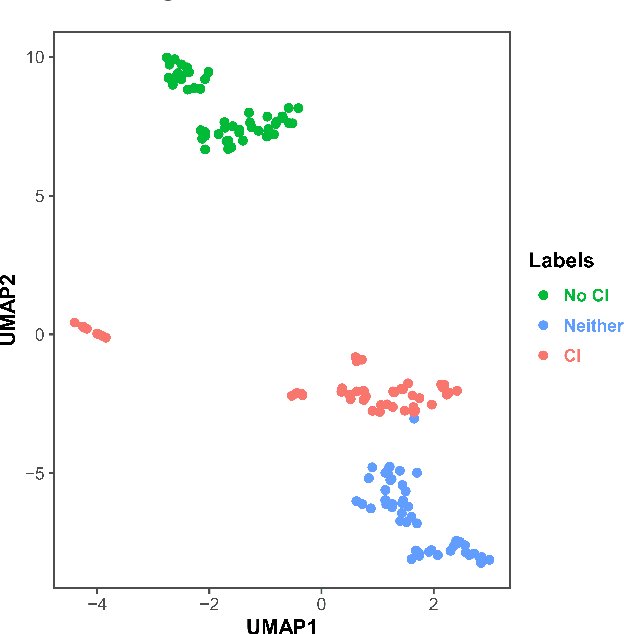

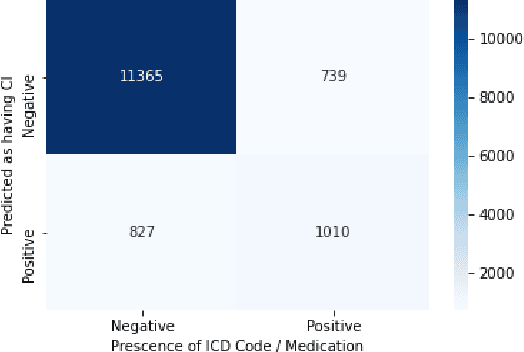
Abstract:Dementia is a neurodegenerative disorder that causes cognitive decline and affects more than 50 million people worldwide. Dementia is under-diagnosed by healthcare professionals - only one in four people who suffer from dementia are diagnosed. Even when a diagnosis is made, it may not be entered as a structured International Classification of Diseases (ICD) diagnosis code in a patient's charts. Information relevant to cognitive impairment (CI) is often found within electronic health records (EHR), but manual review of clinician notes by experts is both time consuming and often prone to errors. Automated mining of these notes presents an opportunity to label patients with cognitive impairment in EHR data. We developed natural language processing (NLP) tools to identify patients with cognitive impairment and demonstrate that linguistic context enhances performance for the cognitive impairment classification task. We fine-tuned our attention based deep learning model, which can learn from complex language structures, and substantially improved accuracy (0.93) relative to a baseline NLP model (0.84). Further, we show that deep learning NLP can successfully identify dementia patients without dementia-related ICD codes or medications.
 Add to Chrome
Add to Chrome Add to Firefox
Add to Firefox Add to Edge
Add to Edge